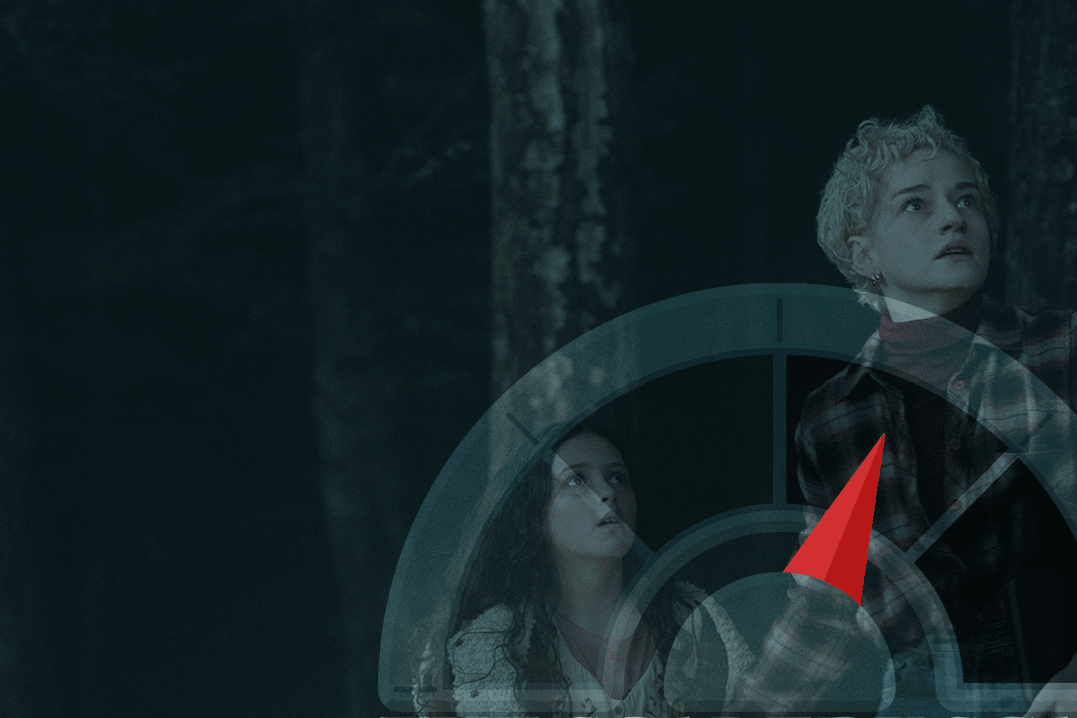For die-hards, no horror movie can be too scary. But for you, a wimp, the wrong one can leave you miserable. Never fear, scaredies, because Slate’s Scaredy Scale is here to help. We’ve put together a highly scientific and mostly spoiler-free system for rating new horror movies, comparing them with classics along a 10-point scale. And because not everyone is scared by the same things—some viewers can’t stand jump scares, while others are haunted by more psychological terrors or can’t stomach arterial spurts—it breaks down each movie’s scares across three criteria: suspense, spookiness, and gore.
If you’re heading in packs to the theater this weekend, you might be intrigued by Wolf Man, a reboot of the 1941 film The Wolf Man. The latest title from the storied horror production company Blumhouse was written and directed by frequent James Wan collaborator Leigh Whannell, the writer behind plenty of popular horror films (Saw, Insidious, etc.) and the director of the 2020 sci-fi horror stand out The Invisible Man. Originally, Wolf Man was intended to be a starring vehicle for Ryan Gosling, as news outlets reported in 2020. But, after many production changes spurred by scheduling conflicts and the COVID pandemic, the film is finally here in a different form. Now, it stars Christopher Abbott (The Sinner, Poor Things) and Julia Garner (Ozark, Inventing Anna) as Blake and Charlotte, a married couple who hope that a family visit with their daughter to Blake’s empty childhood home in Oregon will salvage their struggling relationship. But nothing is ever that easy, or that benign, in a Blumhouse film. Whannell has successfully scared us for years as the orchestrator of plenty of our most beloved horror films, but how does Wolf Man measure up to the hailed frights in the writer-director’s résumé? Let’s sniff this out.
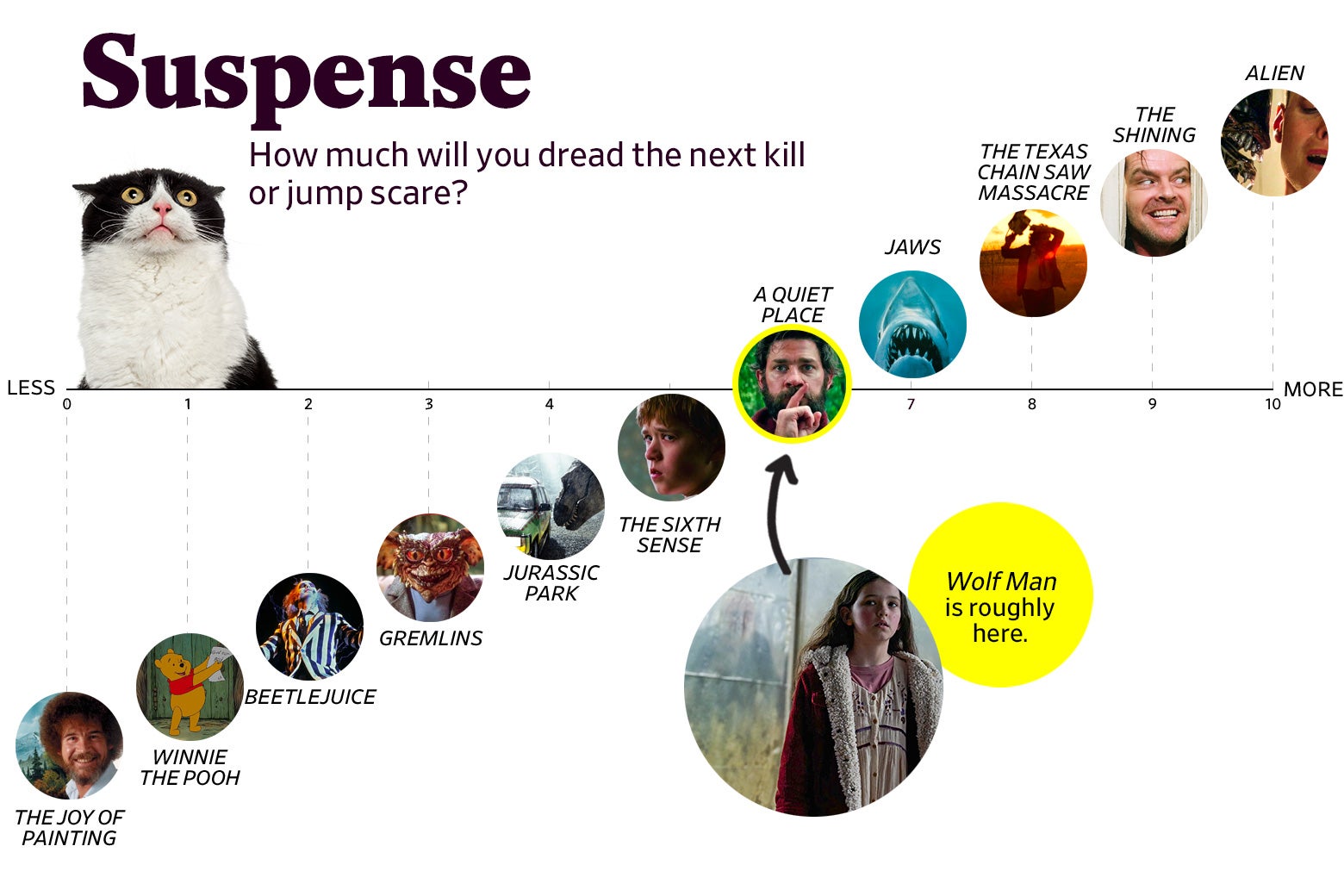
Wolf Man’s first scene—a prologue in which young Blake goes into the woods with his father to hunt deer—handles suspense fairly well, using the viewpoint of the scope on a hunting rifle to limit the audience’s vision and enhance the element of surprise. Nature is beautiful and essential, the film highlights, but it can also be creepy and dangerous, as best illustrated by the dilapidated house by the forest—the perfect setting to exploit viewers’ nervous systems. As Blake’s father reminds him while they hunt, you’re always “an inch away from death.” Luckily, you’re further than a mere inch away from jump scares with this lupine story. After the opening scene, the jolts are definitely present, but not too frequent. What’s more, you can see most of them coming. While this only makes the shocks more effective, in my opinion, it also makes them easier to avoid. All in all, even the more frightful among us will make it out of this movie just fine.
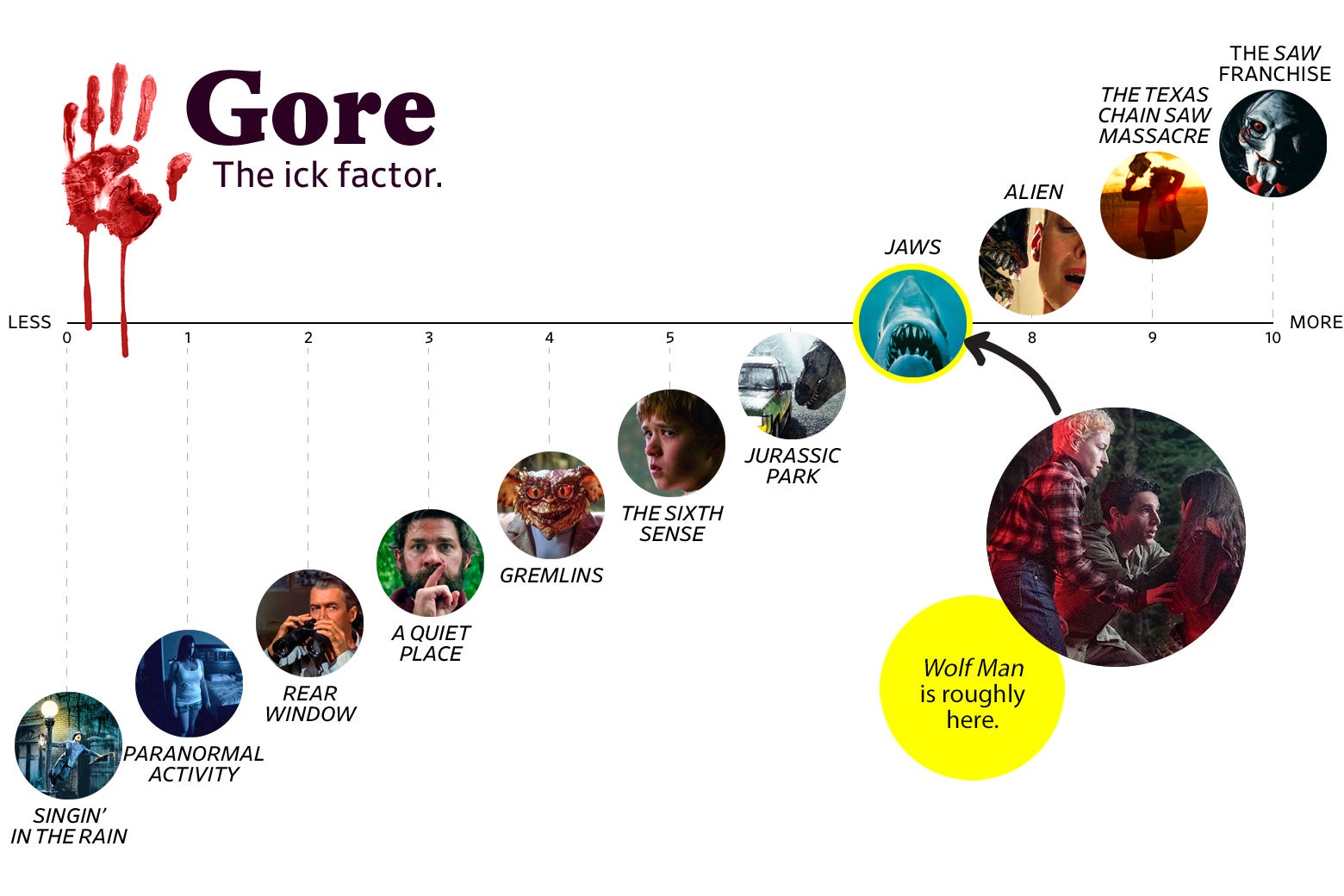
As is practically requisite for any tale of lycanthropy, there will be blood; there will be viscera! Wolf Man can be forgiving in this department, however, with the gore happening less often than you might otherwise expect. With that said, when it does happen, it’s still pretty frickin’ gross! What starts with a gnarly gash turns into watching a human body deform before your very eyes. Not to mention, there’s the gnawing of limbs (plural). Though Wolf Man tries to focus more on upsetting you emotionally than physically, it certainly has its fair share of fun in the yuck department. Consider yourself warned: Whether or not you’re biting your arm off to see this movie, arms will be chomped on.
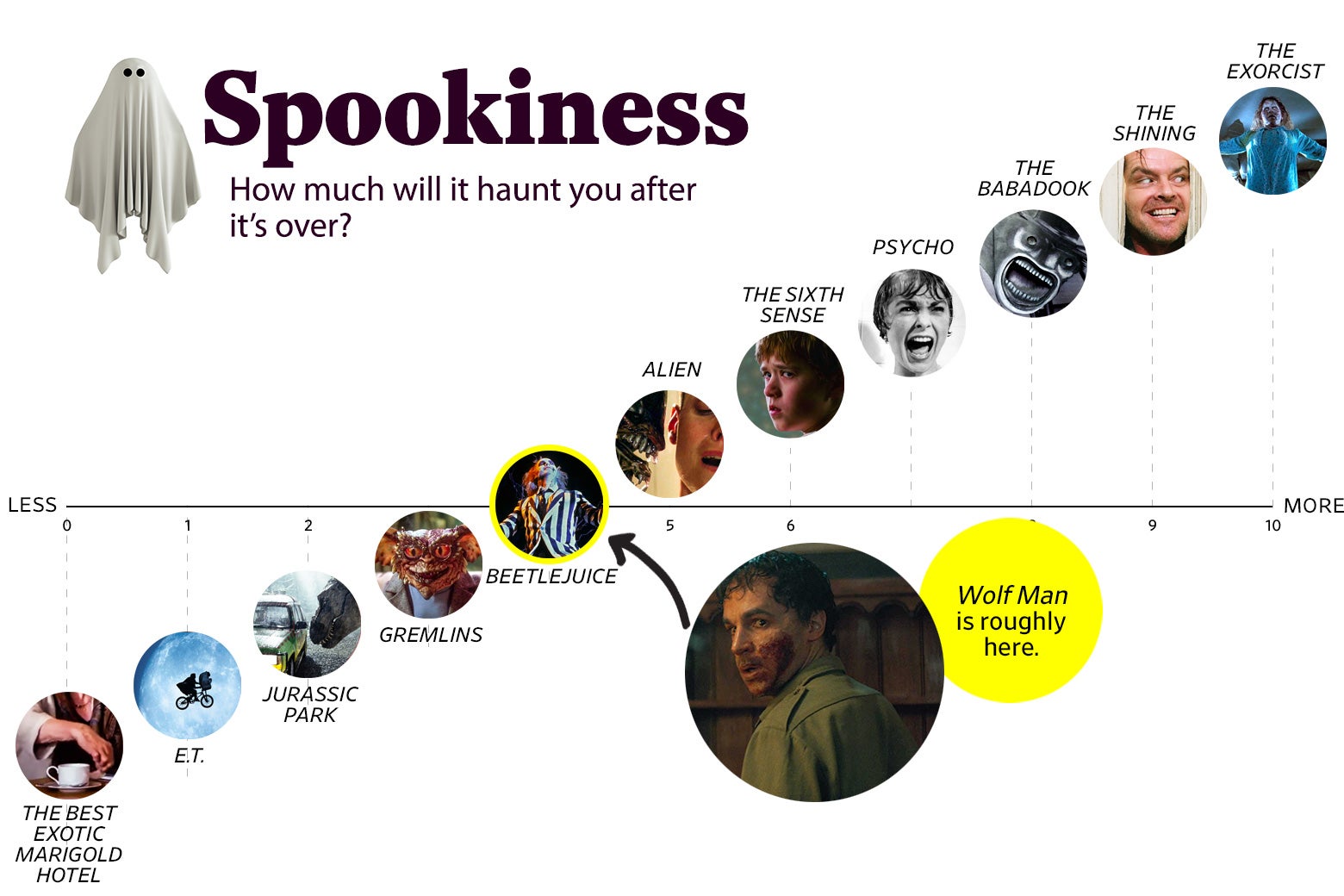
Wolf Man tries to rank higher on this haunting scale, but it never quite gets there. I felt thrown out of the movie on a few occasions, whether because of stilted dialogue, questionable plot developments, or a general sense of what is this movie trying to be about? Unfortunately, these moments kept me from feeling appropriately terrified throughout. This is disappointing, because, on paper, Wolf Man does bring up interesting and legitimately bone-chilling questions: At what point do you decide that the developing danger inside is more dangerous than what you know lurks outside? At what point do you give up on saving someone you love? Or, as the one changing into a beast, what does humanity even amount to, when it comes to fatherhood and family? The idea that you could watch your father or husband turn into an unrecognizable thing right before your eyes is particularly devastating, and a good metaphor for plenty of heartwrenching real-life predicaments. But the movie doesn’t try to extend this idea as a metaphor, or even focus on this one idea throughout—a surprising miss, given that Whannell’s The Invisible Man was praised specifically for how it handled themes of domestic abuse. Despite claiming to be about pandemic-inspired metaphors of isolation, confinement, and grief, Wolf Man’s main message is muddy at best, resulting in a movie that’s thematically confusing, moderately entertaining, and only a little scary.
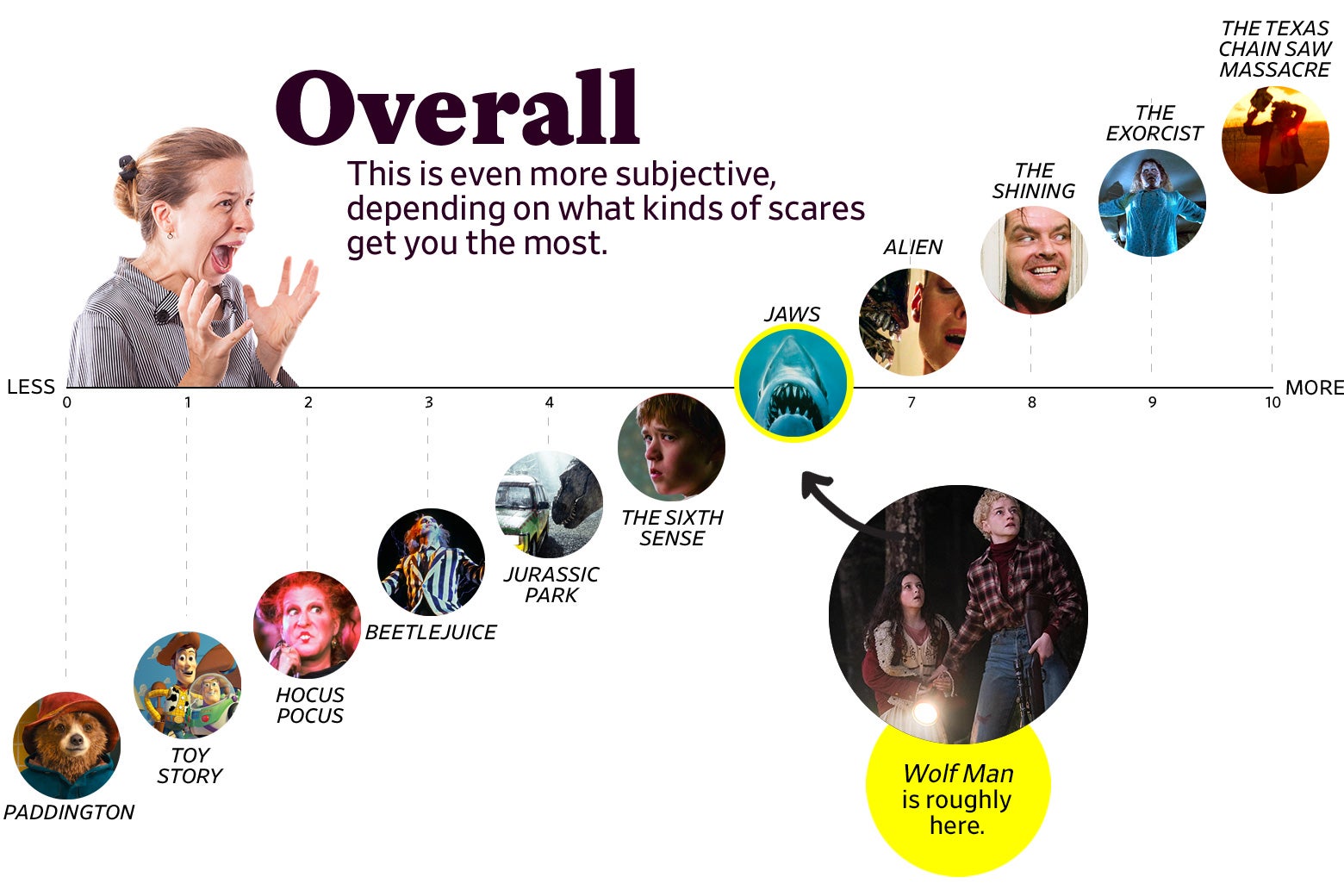
While Wolf Man had a lot of squandered potential, it’s still a fairly serviceable horror flick! Christopher Abbott delivers a great performance, and all the classic horror techniques are certainly employed. Though you won’t feel petrified, you will feel, on occasion, nauseated or exhilarated. You may even be touched by the movie’s more heartwarming depictions of a strong father-daughter relationship. I’m sure 2025 has spookier movies still in the chamber, even if this first major horror release leaves plenty to be desired.
Get the best of movies, TV, books, music, and more.
